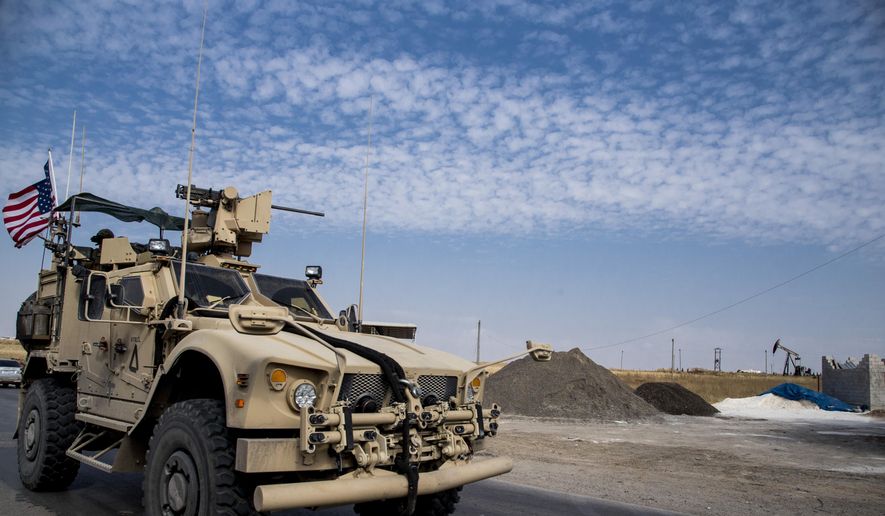U.S. troops last weekend reportedly found themselves in a standoff with Russian forces trying to gain access to key oil fields in northeastern Syria.
The Saturday standoff — first reported by Turkish media outlets, citing unnamed local officials in the Turkey-Syria border region — seems to have ended without any shots being fired or any real risk of violence between the two sides. American military personnel reportedly stopped a Russian convoy near the town of Rmelan, and the Russian forces then apparently turned back and returned to their home base.
Still, the near-clash serves as a reminder of the high stakes in Syria, where the U.S. military’s mission involves guarding oil fields and preventing them from falling into the hands of the Islamic State, Russian forces and other actors.
Pentagon officials did not directly address the reported confrontation with Russian forces last weekend but said there is a focus on avoiding conflict with other “regional forces” in the area.
“In Syria, the Coalition deconflicts military operations with other regional forces, in order to keep our troops safe,” Col. Myles B. Caggins III, spokesperson for the U.S.-led Operation Inherent Resolve, told The Washington Times on Tuesday. “We seek to deconflict our movements through pre-existing communication channels and interlocutors, in order to prevent unnecessary and unplanned military interactions, and de-escalate between forces when necessary.”
Operation Inherent Resolve is the American mission to defeat the Islamic State in Syria and Iraq. The core U.S. mission in Syria remains the defeat of the Islamic State, along with the training of U.S.-backed regional forces also battling the Islamic State.
But last year the Trump administration adjusted that mission. President Trump directed the Pentagon to assign U.S. troops to guard oil fields from the Islamic State, which used Syrian fuel as a key income source during its rise to power.
The president suggested that U.S. energy companies eventually could take control of those oil fields and turn them into an American revenue source, though there’s no evidence that such a plan is coming to fruition.
Pentagon officials have been well aware that the revamped mission in Syria could put the U.S. on a collision course with Russia. At a Pentagon news conference last October, Defense Secretary Mark T. Esper was pressed on whether the American mission includes preventing any Russian forces from taking control of Syrian oil.
“The short answer is yes, it presently does,” Mr. Esper said in October. “We want to make sure the (U.S.-backed Syrian Democratic Forces) has access to the resources in order to guard the prisons; in order to arm their own troops; in order to assist us with the defeat of ISIS.”
Mr. Trump has repeatedly tried to fully withdraw U.S. forces from Syria over the past 14 months but several hundred U.S. troops remain in the country.
• Ben Wolfgang can be reached at bwolfgang@washingtontimes.com.




Please read our comment policy before commenting.